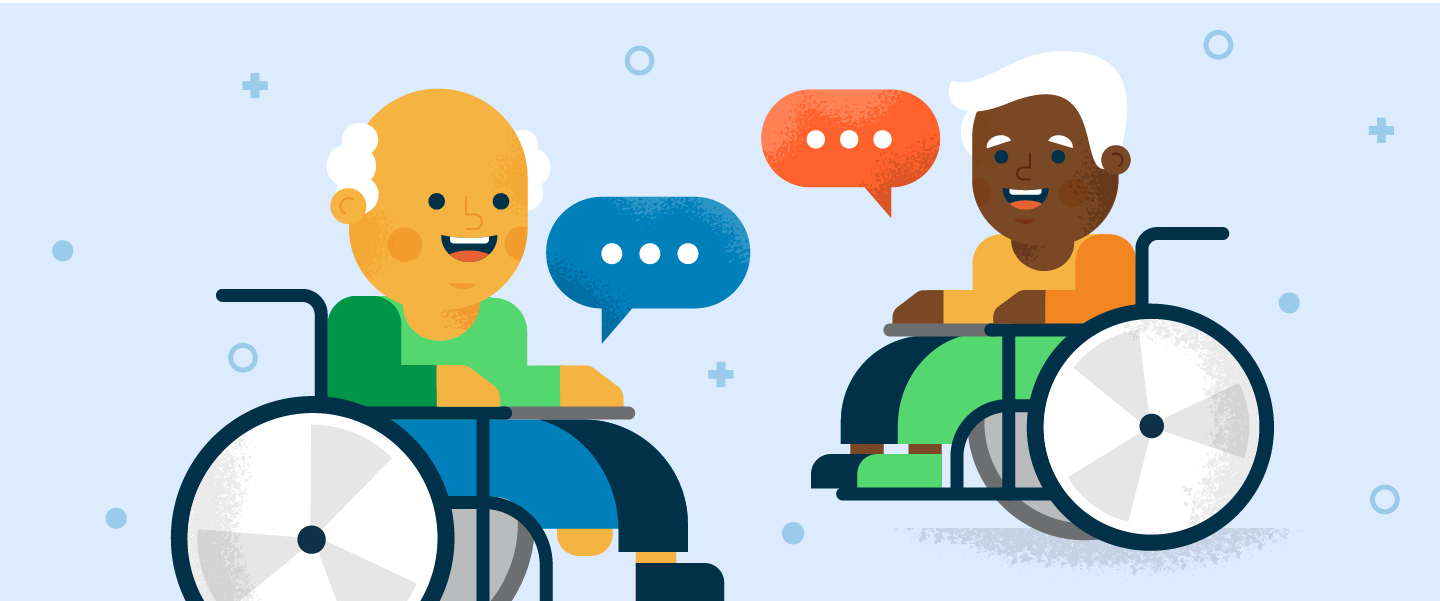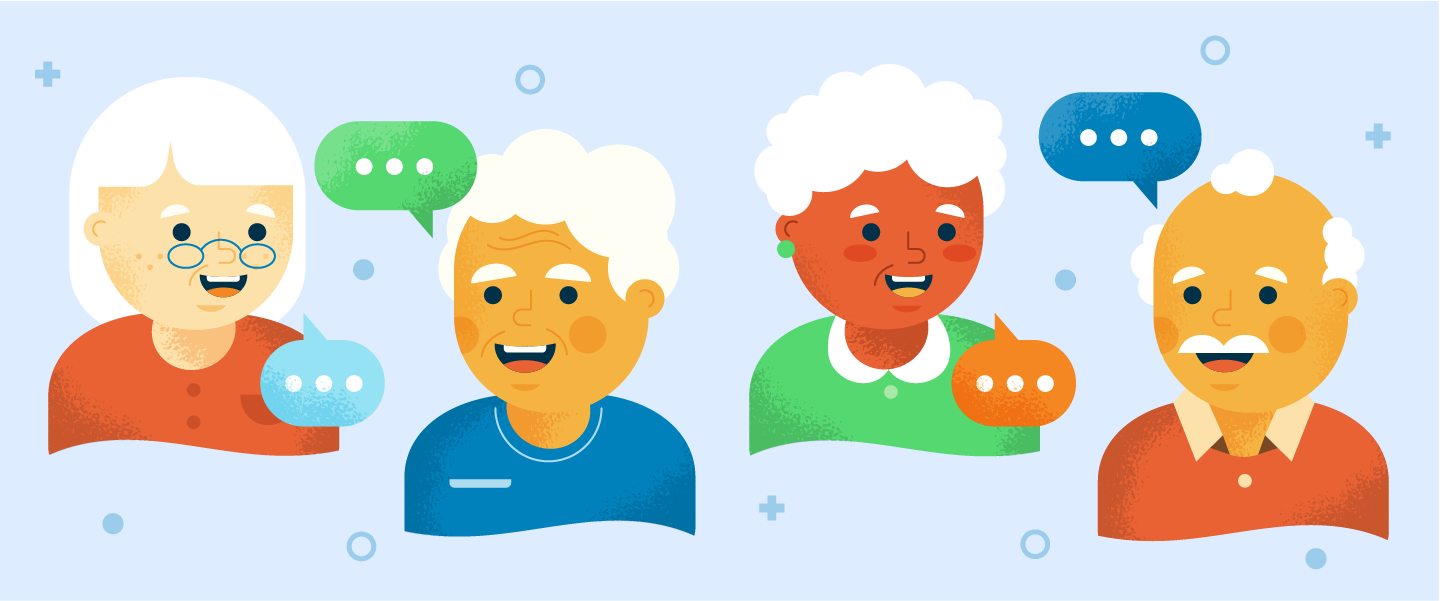26
May
Hobbies for Seniors and Retirees on a Budget
Some of the merchants listed in this blog pay us a commission when you make product purchases using the links we provide.
Baby boomers are reaching retirement and anxious to get started living. Taking on a new hobby will fill the void of no longer working and break up the repetition of everyday life.
There are a number of benefits to taking up a new hobby in your golden years. Traveling can provide a new perspective on life, volunteering can help build your social network and writing can keep your favorite memories intact. In fact, The National Institute on Aging reported that the benefits of seniors maintaining active lifestyles include a longer life span, improved thinking abilities and help coping with loss.
When it comes to finding a new project, there are plenty of inexpensive hobbies for seniors of all skill levels and physical abilities. Check out our guide to low-cost hobbies for seniors. You’re sure to walk away with a few ideas to keep you busy.
Low-Cost Hobbies for Seniors with Mobility Limitations

Mobility limitations and impairments affect half of adults in the U.S. over the age of 65. Loss of movement can result in lowered social interaction, lack of mental stimulation and a sedentary lifestyle. This causes the body to regress quickly and be more susceptible to age-related diseases. Performing tasks like writing, gardening and playing music can slow age-related ailments and promote a positive outlook on life.
Today, seniors can learn new skills by downloading online programs and courses, or one-on-one home visits with an instructor. Daily exercise requirements can be achieved around the yard and in small group settings. Social outings at senior centers, meetup events and specialized clubs can help seniors meet new people. Whatever you’re looking for, we’ve listed plenty of options below.
Write Your Memories
Writing stories is a great way to find meaning and fulfillment in life. After retirement, it’s important to take note of life achievements.
Writing stimulates the brain and preserves memory, using hand-eye coordination in the process. The American Academy of Neurology conducted a study that found reading and writing can prevent brain shrinkage. The same study also found that the rate of memory decline was diminished by 32 percent in seniors that participated in frequent mental-focused activities.
Craft your skills at home, with a group of friends or with a local community organization. Think about writing a newsletter for your local senior citizen center, favorite non-profit or alternative press newspaper. There’s no reason not to get started!
Learn a New Language
You’re never too old to learn a new trick, especially a new language. In fact, studies have shown that seniors who learn a new language improve cognitive brain function and delay symptoms of Alzheimer’s disease.
Researchers at Edinburgh University conducted a study on the impact of bilingualism on cognitive aging and dementia. The report showed that knowing a second language is linked to healthy aging. Patients that were monolingual showed symptoms of Alzheimer’s disease four years faster than those that were bilingual.
The study later suggested that if more research is conducted on bilingualism and cognitive aging that it could be one of the most effective tools for fighting against dementia. This includes the use of pharmacological treatments.
Learning a new language is exciting. One major benefit is exercising the brain daily with new words, phrases and concepts. You gain a greater understanding and appreciation for another culture’s history, values and beliefs. With advancements in technology, you can learn anywhere!
For the adventurous types, there are senior abroad courses, where retirees travel to other countries, mingle with the locals and enjoy the sites. Jump to the travel section of this guide for a list of senior travel groups to consider.
Play a Musical Instrument
Music touches our souls regardless of age. After retiring, what better time to learn how to play a new instrument? More seniors are picking up instruments and learning to play a few bars. Since multiple areas of the brain are recruited to read notes, utilize hand-eye coordination to play and keep a rhythm, playing a musical instrument improves motor skills. Joining a music group can also boost emotional and social skills.
Music schools and community centers offer classes geared toward seniors, helping them stay healthy and meet new friends in the process. The ukulele, piano and harmonica are listed as some of the easiest instruments for adults to learn to play, due to ease of learning, mobility required and financial costs. Involvement in art projects like playing music creates positive effects on mental and emotional health, and decreases stress and anxiety in older adults.
Organizations like The NAMM Foundation help seniors get active in the music world, offering lessons and programs for all skill levels. They believe that music is a key to learning, inspiring creativity and unspoken communication with the world.
Indulge Your Green Thumb With Gardening
Gardening is one of the best ways to stay active during retirement. It’s a low-impact aerobic activity that burns calories and boosts energy. Pushing the mower, raking leaves and watering tomatoes all utilize muscles throughout the body.
A study performed by the American Society for Horticulture reported that 30 to 40 minutes a day of gardening is an ideal way for seniors to maximize active daily physical needs. Other health benefits of gardening for seniors include lowered blood pressure, decreased stress, improved mood and exposure to the sun to increase vitamin D levels.
Growing plants at a community garden is a way to help the community and connect with other green thumbers. Collaborating with other gardening gurus will boost your mood and keep your social life buzzing. If you live in a city that experiences snow for a few months, create a dedicated indoor gardening space until the snow thaws.
Look into joining local community gardens, clubs and collaborative projects in your neighborhood.
Practice Yoga For Balance
Yoga isn’t just for the young and the hip. It’s a great way for seniors to stay flexible, strong and balanced. For seniors, practicing yoga breathing can help increase lung capacity, plus improve posture and overall balance.
From beginner restorative stretching to Yin’s posture-correcting practices, there are many slow-intensity styles to choose from. When selecting a yoga studio, it’s important to find a locale that meets seniors’ needs. Johns Hopkins University recommends contacting local studios, gyms or senior centers first. Ask them if instructors work with senior demographics. These specialized teachers understand regulating intensities and mobility modifications.
Yoga’s lasting benefits will leave you feeling relaxed, energized and grounded. Practicing with a group allows you to be part of a community of like-minded seniors that love staying fit and having fun. To jump-start this new hobby, grab some leggings and gear with these Alo Yoga coupons.
Low-Cost Hobbies for Seniors Looking to Stay Social

After retirement, staying at home can be a struggle. Family members become engrossed in their lives or move away. Old friends aren’t always available to reminisce about old times and it becomes harder to make new ones.
Joining a social group allows seniors to develop social networks with people that share common interests and goals. Staying social in the later years is important for fighting depression, loneliness and preventing a sedentary lifestyle.
Northwestern University conducted a survey of 31 aging adults and found that those who maintained social ties showed slower deterioration of memory than those who didn’t. Other studies have shown that social interaction in older age is critical to preserving personal wellbeing.
Your family may not always be around, but that doesn’t mean that you have to sit and wait. Joining a local senior citizen center, gym and volunteering are ways to fill up your social calendar.
Volunteer to Make a Difference
While it’s not a full-time job or taking care of an entire household, volunteering provides an excellent outlet for retirees to give back to their communities, while staying active and social. In 2018, the Corporation for National and Community Services (CNCS) reported that Baby boomers contributed 2.2 billion hours of volunteer service. That means that 30.7% of all volunteers in the U.S. were of the generation.
Other studies have shown seniors that volunteers experience lower mortality rates, fewer symptoms of depression, minor physical limitations and higher levels of well-being. It helps with stress relief, gives a sense of accomplishment, improves confidence and self-esteem, and assists with transitioning into retirement.
There are dozens of opportunities to get active in your community from tutoring, helping at religious centers, food kitchens, hospitals, libraries, senior centers and even the local neighborhood gym. The possibilities are endless! Here are a few ideas to get you started on your search for the perfect volunteer position:
AARP Foundation: The AARP Foundation gives seniors 50 and older an avenue to help low-income individuals with tax preparation, financial services, literacy and more! The organization gives retirees the opportunity to stay active using their talents to fight against senior poverty.
Big Brothers Big Sisters of America: Big Brothers Big Sisters of America gives volunteers an opportunity to leave a long-lasting impression on a child. By providing mentorship, guidance and motivation, Big Brothers and Big Sisters serve as a source of inspiration for their little brother or sister during their most impressionable years.
Senior Corps: Senior Corps is for seniors 55 and older that want to use their experience and wisdom to volunteer as Foster Grandparents (to tutor students), Senior Companions (to help other seniors stay independent) and with the RSVP Program (volunteering with partnering organizations) to make positive impacts in their communities and with others around them.
Meals on Wheels: Meals on Wheels is more than dropping off food at home. It’s about developing long-lasting friendships with others. The organization serves 5,000 communities across America, delivering healthy meals, offering friendly visits and safety checks for independent living seniors.
YMCA: The YMCA is known for youth development, healthy living and social responsibility. With 600,000 volunteers in more than 10,000 communities across the country, there are dozens of opportunities to help individuals from different cultural, religious and socioeconomic backgrounds in your community.
Volunteering shouldn’t be limited to only a handful of locales. There are hundreds of non-profit and community organizations that need support to make a difference in your city.
Get Active With a Social Club
Senior centers allow retirees to come together as a community. The centers provide older adults with services that help them stay independent and healthy. From classes, clubs and activities, to tax preparation assistance and counseling, they are the epicenters of senior citizens.
Learn to knit a sweater for your new grandchild, be the first to yell, “Bingo!” in a tournament, take a yoga class or just chat. Some locations even offer community outings and chauffeur seniors to medical appointments, shopping malls and grocery stores.
Senior centers are a one-stop-shop for retirees. After retirement, sitting at home is no longer an option. Look into the nearest senior citizen center near you.
If you’re interested in building your social network and have the gift of gab — or wish that you did — improve your communication skills at a Toastmasters event, or chat with marvelous Queens of the Red Hat Society.
Join a Fitness Center
Gyms and fitness centers allow seniors to stay healthy and improve daily living. They’ve become the social hub for neighborhoods and communities. Members can spend the day taking classes, learning about nutrition and strengthening muscles with a personal trainer.
Gyms have evolved from iron-pumping dungeons to full-fledged nutrition offices. Many offer specialty services such as nutrition coaching, panel testing and additional labs that can help fight obesity and strengthen the immune system.
Being older does have its benefits. AARP and SilverSneakers offer seniors discounts to gyms and on fitness brands throughout the country. Both companies team up with local gyms to ensure that retirees receive senior rates and access to exercise training and resources.
If you’ve recently retired and are not ready to stop working, earn a little extra cash at the gym. Many centers such as the YMCA and Lifetime Fitness employ senior citizens for front desk and customer service assistance.
Hit the Road and Travel
If you’ve ever wanted to see the Colosseum in Rome or take a picture next to a guard at Buckingham Palace, there’s no time like the present.
Traveling at an older age gets you out of your comfort zone and into the world! Unplugging from life helps improve mood, promote open-minded thinking and create a greater sense of adventure.
Check off stops on your bucket list visiting the grandkids in California, fishing in Minnesota or loading up the Winnebago to head over to the Grand Canyon.
Whether you’re with a partner, a group of friends or traveling solo, joining a travel group connects you with other seniors that share the same passion for travel. Explore the great outdoors with Road Scholar, speed through the European countrysides with Vacations by Rail or make limoncello in Sorrento, Italy with Women Traveling Together.
Low-Cost Hobbies for Seniors with Dementia

Dementia is a degenerative brain disease, where people experience forgetfulness and other symptoms of impairment. Simple everyday tasks become chores and emotions race on a rollercoaster. Aging is inevitable, but developing dementia can bring life to a halt.
The Alzheimer’s Association identified 50 million people worldwide living with Alzheimer’s or dementia, and 5.3 million Americans over the age of 65 battle Alzheimer’s. Symptoms can quickly spread, slowing mental and physical function and limiting activities for many seniors.
Making crafts is used as a source of art therapy for many older patients to help decrease anxiety, give a sense of control and preserve psychomotor skills. Psychologists have even compared the calming effects of arts and crafts to meditation. Seniors can find new freedom in life by knitting blankets, painting landscapes and making clay pots.
Quilt For Inspiration
Quilting is an art. For generations, like-minded sewing enthusiasts have gotten together to trade patchwork, inspire ideas and share trade secrets. There are organizations like The Modern Quilting Guild that hold national events, but smaller clubs can also be found at senior centers. All skill levels are welcome to participate.
Scrapbook Memories
Take a walk down memory lane by creating a scrapbook of memories. Sorting through old photos can help seniors retain important events in their lives. Creating a scrapbook can give a sense of accomplishment and allow seniors to share their family history with grandchildren and other loved ones.
A relatively inexpensive hobby, supplies can be purchased online from a specialized scrapbooking website or at a local crafts store. Plus, there are plenty of scrapbook expos around the country to help cultivate new ideas.
Restore Creativity With Painting
Painting is known for its use in therapy and recovery. Creating works with watercolors, oil paints and even paint by number can inspire humor, playfulness while improving focus and manual dexterity. Get your brushes ready and let the creative juices flow.
Make Homemade Cards
Making homemade cards is a fun and easy way for seniors to get their ideas out. Craft the perfect birthday or holiday message using craft supplies, stencils, markers and everyday items like buttons and bottle caps. The only limit is your imagination.
Low-Cost Hobbies to Improve Brain Health

Maintaining proper brain health is important for aging seniors. The brain becomes more susceptible to disease and deterioration when inactive. Brain games like crosswords, sudoku and puzzles help keep memory sharp. They enhance reaction time and can be performed independently, in a duo or a group.
Engaging in games like dominoes and chess at a senior center can curb social anxiety, connecting seniors with a common bond. This alone can eliminate feelings of loneliness and depression.
Solve Crossword Puzzles to Improve Your Memory
Crossword puzzles have been popular among senior circles for years. They keep the mind fresh, requiring memory recognition to solve clues and expand vocabulary. They’re easily accessible online or with mobile apps, newspapers and books.
Play Board Games to Enhance Thinking Skills
Playing board games and arithmetic-based games like dominos adds a little competition to life. Players have to match numbered tiles to score points. After each round, the points are added up, and the first player to 100 points wins. Dominos promote quick thinking, strategy and math skills. Games require two to four players, so be sure to bring friends.
Jigsaw Puzzles Expand the Mind
Putting together jigsaw puzzles is a mental workout. They engage both sides of the brain to work in creative and logical fashions. Seniors can expand problem-solving skills and their attention spans, connecting pieces and visualizing the finished product.
Play Chess to Improve Problem-Solving Skills
Chess is played in parks, recreation centers and in backyards all over the world. This game helps older adults physically, mentally and socially. The St. Louis Chess Club reported several benefits for this hobby that engages problem-solving skills and building social relationships. Playing against different opponents and analyzing games gives seniors a chance to make new friends and enhance their skills.
We’ve put together an infographic of science-backed tips for seniors to find exciting new low-cost hobbies and stay young at heart. You may not be getting any younger, but that doesn’t mean that the good times have to stop. Staying active with hobbies and connecting with others through social clubs will keep you shining well into your golden years. Be sure to maximize your savings with curated coupons from stores you shop every day, like Amazon and Walmart.

Sources: Alegre Home Care | Alzheimer’s Association | American Academy of Neurology | American Society for Horticulture | Capital Senior Living | Corporation for National and Community Services | Edinburgh University | Johns Hopkins University | The NAMM Foundation | The National Institute on Aging | NCBI | Northwestern University | Seniorliving.org | The St. Louis Chess Club | TakeLessons | Washington Post | Yoga Journal
We hope that you found this blog helpful. Our content is not intended to provide scientific, medical, physical fitness, mental health or financial advice. For specific advice about your unique circumstances, consider talking with a qualified professional. Wikibuy from Capital One does not endorse or guarantee any information or recommendation listed above.
wikibuy is enabled

0 comments